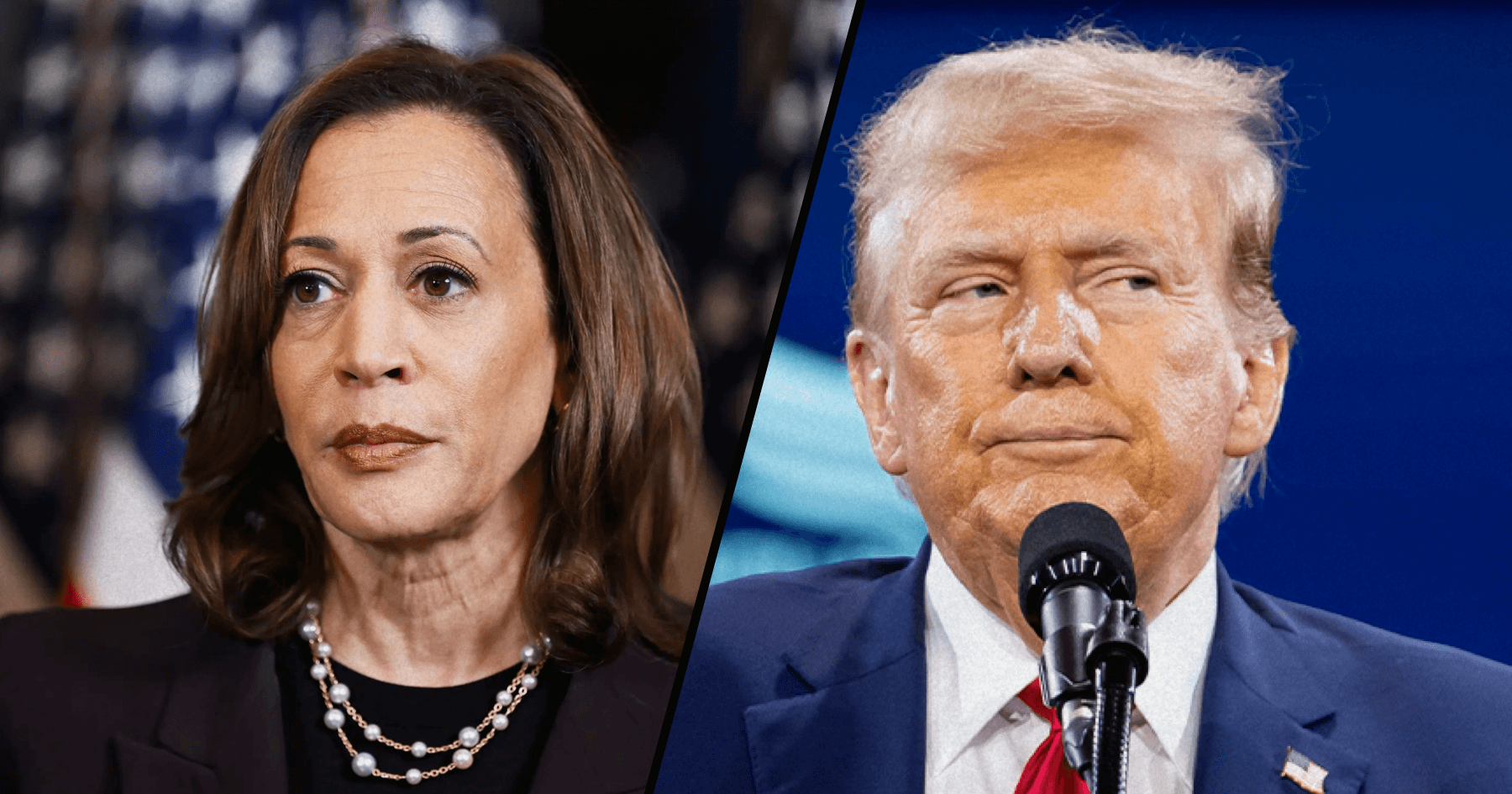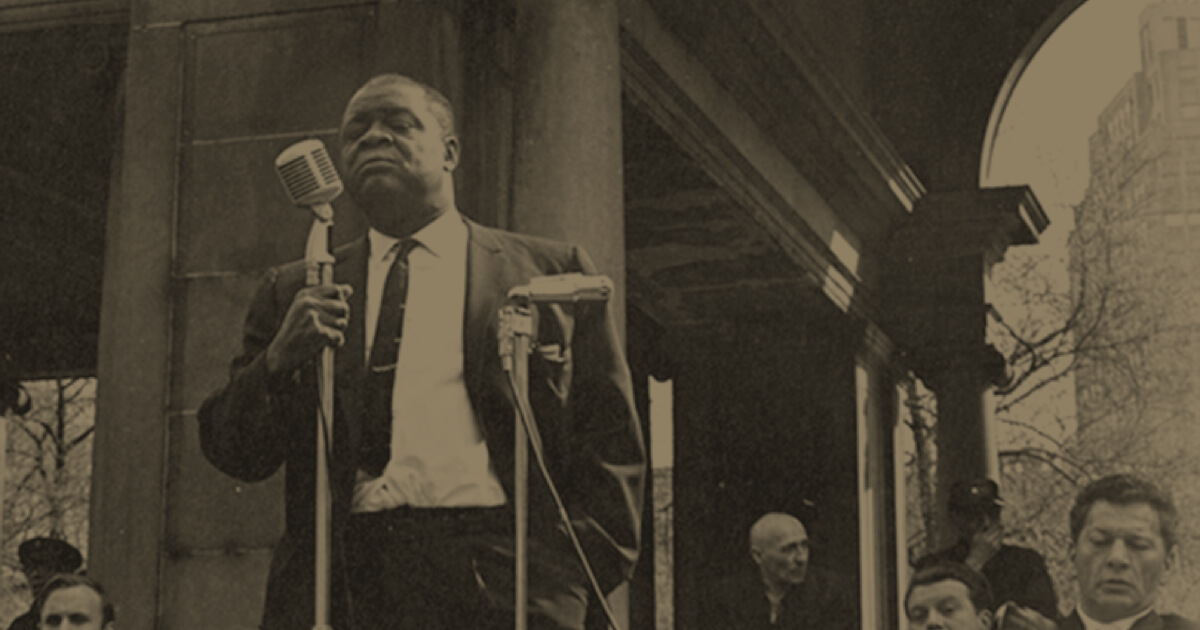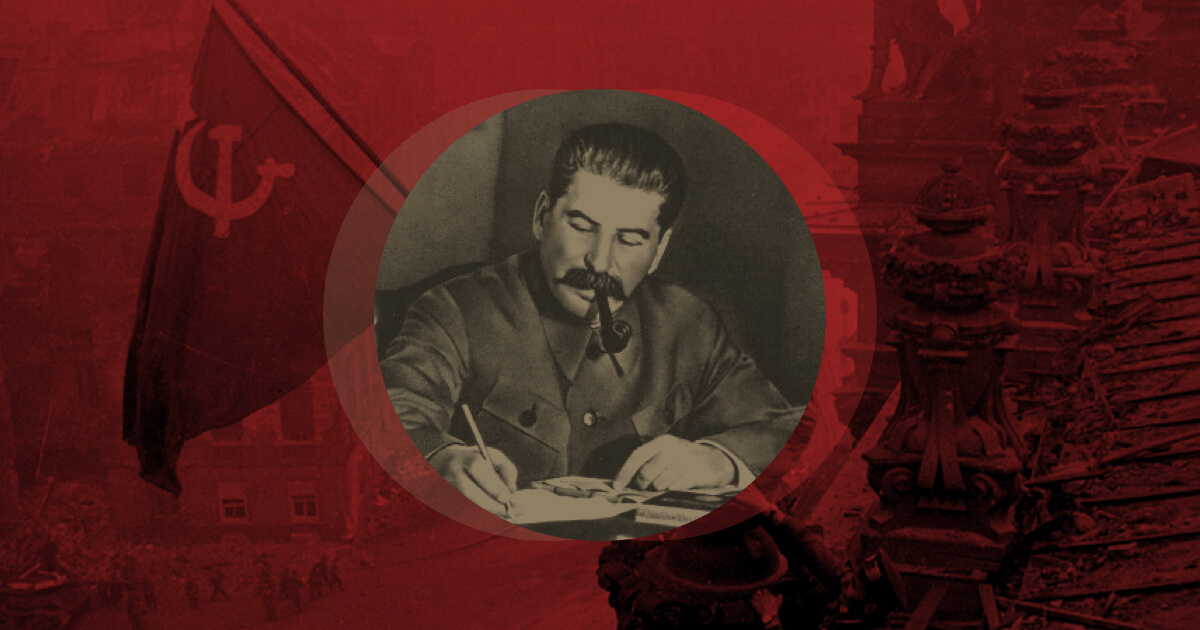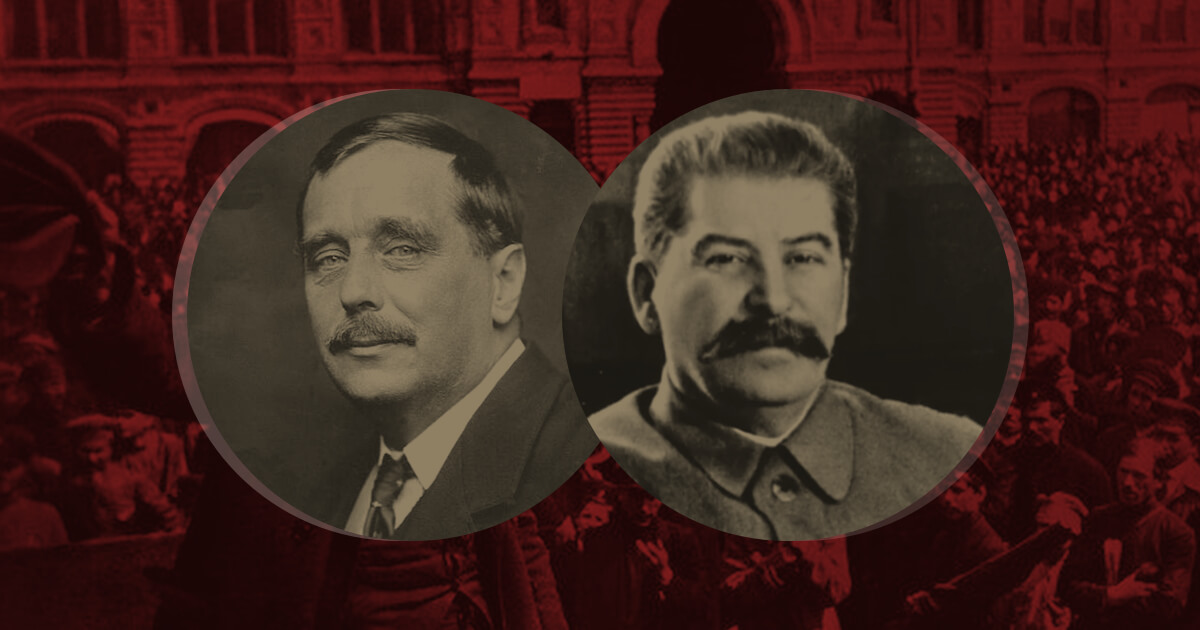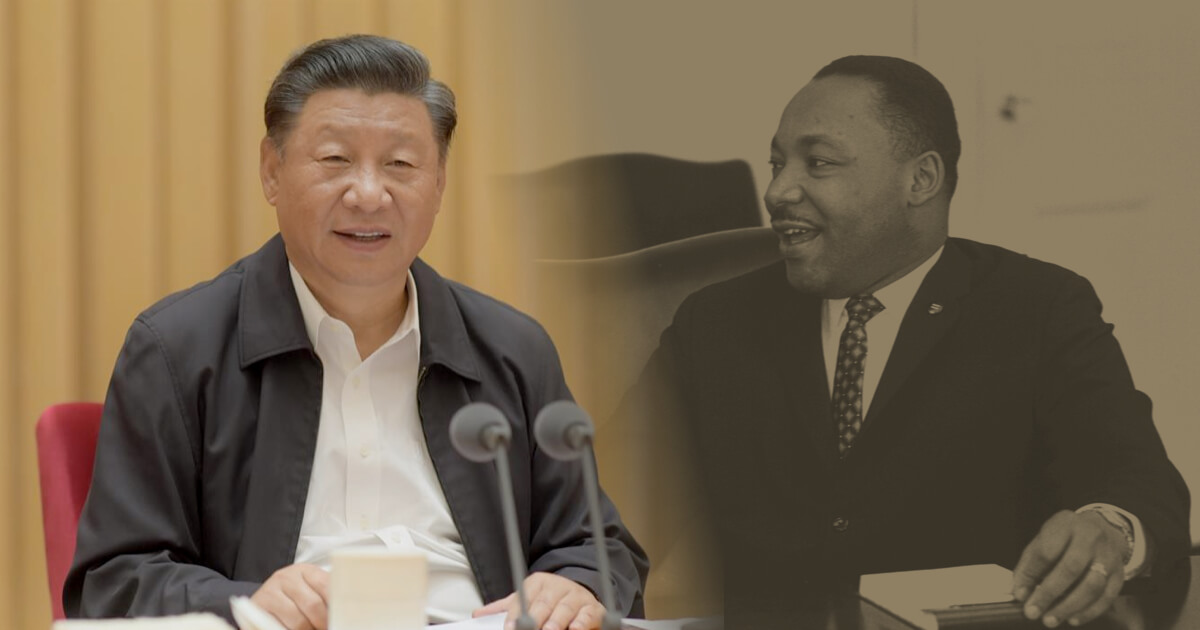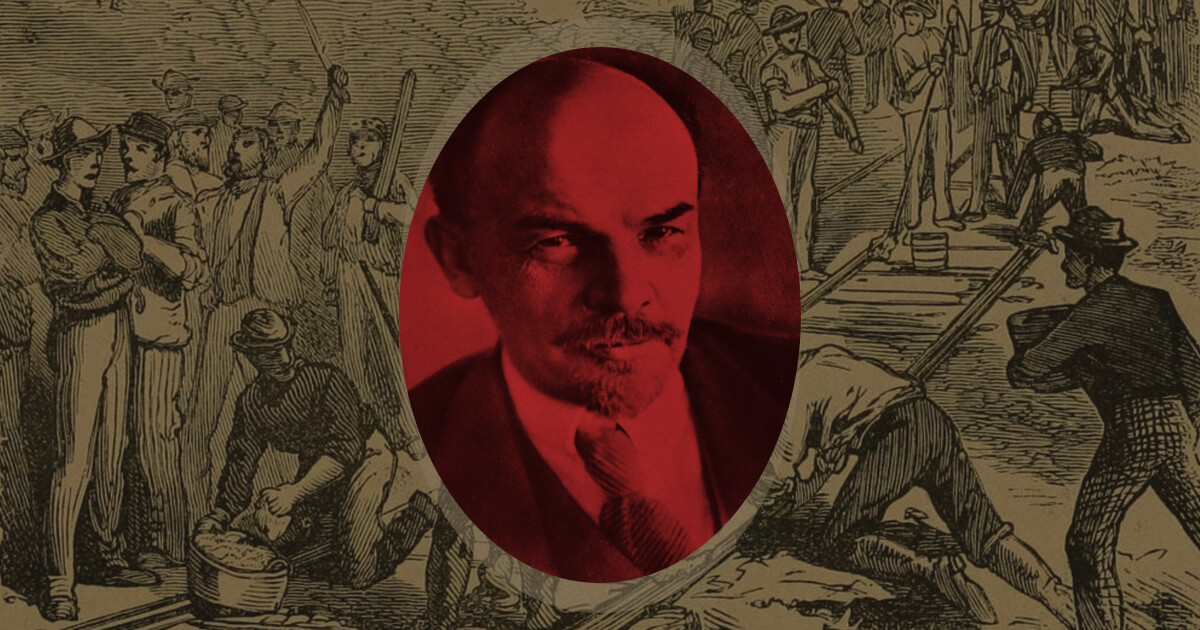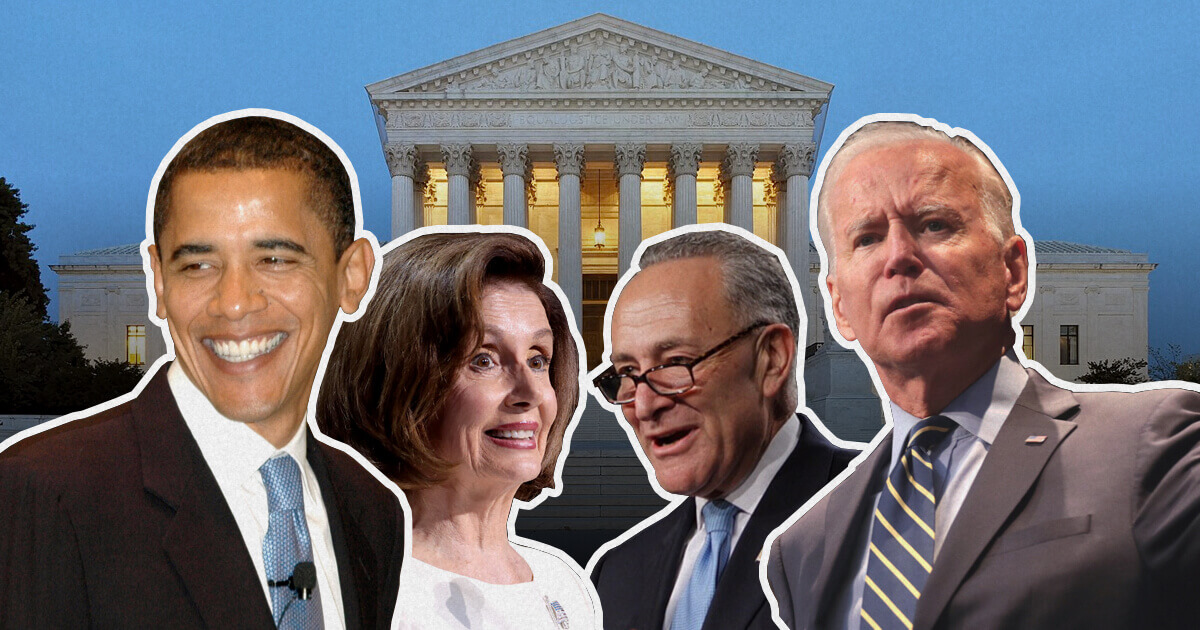As we approach the 2024 election, a curious phenomenon is unfolding in mainstream American politics: a rhetorical war between candidates who brandish accusations of “communism” and “fascism” at each other.
Donald Trump has labeled Kamala Harris a communist, mocking her as “Comrade Kamala,” while Harris and the Democrats brand Trump as a fascist. It would seem that, to paraphrase the immortal words of Karl Marx and Friedrich Engels, two powerful specters are haunting America: the specters of communism and fascism. Both of these labels are heavily loaded, conjuring memories of the great battles of the 20th century — World War II and the Cold War. However, neither candidate fits these ideological descriptions. Rather, these accusations mask a deeper crisis: the decline of U.S. global hegemony and the inability of either major party to address the real issues at home or abroad.
After the Cold War ended, American intellectuals famously declared the “end of history,” convinced that liberal democracy and capitalism were the final and only path forward for human society. This idea, based on the dominance of the U.S.-led world order, is now being challenged. The rise of socialist China and the emergence of a multipolar world led by rising powers like Russia and Iran have shaken the foundations of the U.S.-centered global system. Meanwhile, at home, the American standard of living is in decline, the social fabric is fraying, and both Democrats and Republicans are proving incapable of solving the crises of debt, stagnant wages, and infrastructure decay.
Resurrecting the Ghosts of Fascism and Communism
Faced with these challenges, neither Harris nor Trump has the capacity to offer meaningful solutions. Instead, they conjure up the ghosts of the past to distract from their inability to resolve the crises rooted in the current system of monopoly capitalism. By labeling Trump a fascist and Harris a communist, both candidates appeal to voters’ fear of boogeymen, evoking the historical threats that rallied Americans during World War II and the Cold War. This is a strategy designed to distract from the reality that both candidates represent different factions of the capitalist ruling class, not radical alternatives. This not only distorts the complexities of both fascism and communism but also reveals a profound misunderstanding of these ideologies.
Misunderstandings of Fascism and Communism
American politicians frequently misuse the terms “fascism” and “communism,” displaying a profound ignorance of their actual historical and theoretical meanings. For liberals, fascism is often reduced to a personality trait associated with racism and xenophobia. For liberals, anyone espousing socially conservative values is labeled a “fascist.” Meanwhile, conservatives tend to misconstrue communism as merely an extension of liberal identity politics. In reality, both fascism and communism are complex political systems deeply rooted in the historical development of modern society, and their misuse by contemporary politicians reduces them to caricatures.
The Democrats’ accusations of fascism against Trump stem from their fear that he may be sympathetic to a multipolar world order — one that could challenge American dominance. By portraying Trump as a dangerous authoritarian who “praises foreign dictators” like Xi Jinping or Vladimir Putin, they imply that his foreign policy tendencies align him with rival powers rather than America’s corporate establishment. On the other hand, Trump’s accusations of “communism” against the Democrats are designed to mislead a disillusioned working class. By framing communism as synonymous with divisive “woke” culture — which is promoted by Corporate America itself — Trump obscures the fact that genuine communism isn’t about stoking divisive Culture Wars, but rather about creating an economy that serves the interests of the common people over the corporate elite.
The Truth Behind Trump and Harris’ Rhetoric
Ironically, it could be argued that the Democratic Party, despite its self-identification with liberal values, often exhibits more authoritarian tendencies than its Republican counterpart. The Democrats have a history of rigging their own primary elections and suing to keep third parties off the ballot. In addition, the Democrats anointed Harris the presidential nomination without even bothering to hold a primary. On foreign policy, the Democrats have provided military support to neo-Nazi factions in Ukraine and have allied with Big Tech to silence dissenting voices under the guise of combating misinformation. The Democratic leadership, supported by the military-industrial complex and neoconservatives from the Bush era, such as Dick Cheney, embodies the merger of state and corporate power that is a hallmark of fascism.
Trump’s pseudo-populist rhetoric, on the other hand, often borrows themes that have a surprising resonance with anti-capitalist sentiments. His attacks on the political corruption of Washington, his denouncement of “fake news” and corporate media, and his criticism of endless wars are all positions that could be seen as critiques of the neoliberal capitalist order. Trump’s ability to galvanize working-class voters, particularly in economically devastated regions, taps into a genuine discontent with globalization and deindustrialization. Unintentionally echoing Mao Zedong’s “Great Leap Forward,” Trump has also called for a “Quantum Leap” in the American standard of living, proposing new futuristic cities and a massive expansion of technology and infrastructure. While his policies remain reactionary, Trump’s pseudo-populism echoes certain elements of a communist critique of monopoly capitalism, though it ultimately channels those sentiments in regressive directions. The xenophobic scapegoating of immigrants and Muslims, hostility towards China, and courting of Christian nationalist elements reflect Trump’s use of populist language as a means to justify policies that, ironically, protect bourgeois interests at the expense of the broader working class.
The Path Forward
Ultimately, both Trump and Harris represent a false promise for the American electorate.
Their campaigns highlight a desperate attempt to draw on historical fears, but fundamentally, neither offers a solution to the crises of our time. The invocation of fascism and communism serves as a diversion from addressing the realities of American society: declining living standards, endless war, and a system that prioritizes the interests of finance capital over the needs of the people.
The path forward lies not in the authoritarian liberalism of Kamala Harris, or the pseudo-populism of Donald Trump. Instead, the urgent task of the moment is to create a new 21st century socialist movement that acknowledges the failures of the current system and strives to construct a government that truly represents the interests of the people over the profits of powerful corporate elites. This new brand of socialism must stand in solidarity with the emerging multipolar world, while also building on the unique culture and history of American society itself, rooting itself organically in the needs of the people. The only party capable of leading this charge today is the American Communist Party (ACP). It is only through the disciplined leadership of the ACP that America can overcome the false rhetoric of the two failed capitalist parties and build a brighter future.
